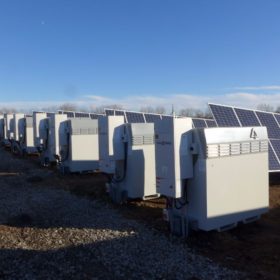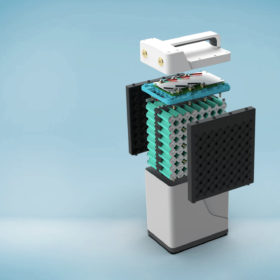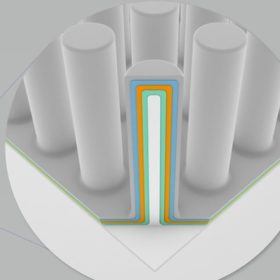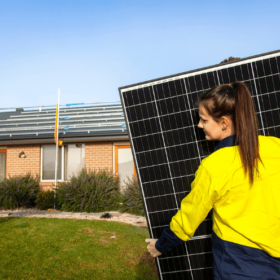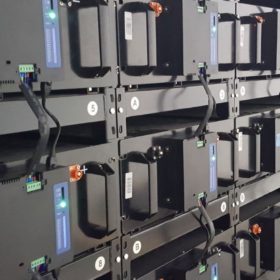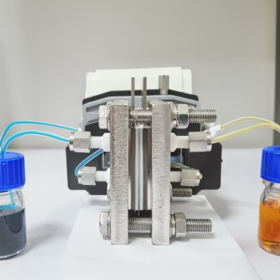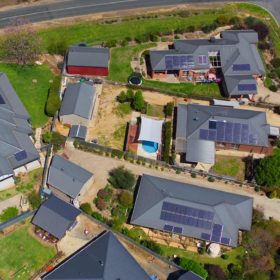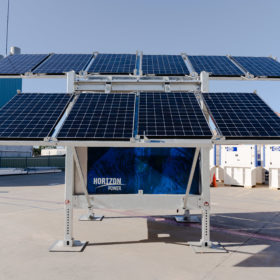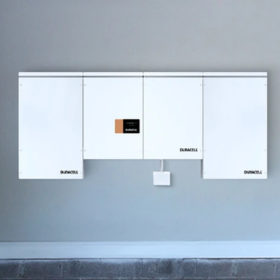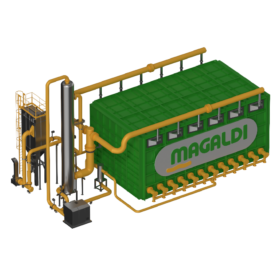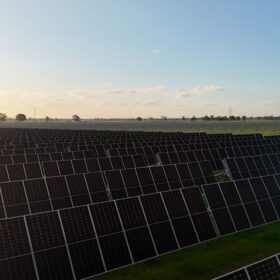Queensland to build “common-user” vanadium processing plant
The Queensland government will put “at least” $10 million towards constructing a common-user facility to process vanadium from the state’s vast deposits, allowing multiple small mining operations to access the facility with the ambition of kickstarting downstream battery storage industries in the state.
UK business claims to have ‘world’s most sustainable lithium-ion battery’
English manufacturer Aceleron claims every component of its devices can be accessed for replacement, repair or recycling, with the business’ co-founder stating the aim is to ensure ‘100% of the materials in our batteries will continue to be used for as long as possible – preferably forever.’
3D solid-state thin film battery from the Netherlands
Developed by a spin-off of Dutch research institute TNO, the battery is claimed to offer higher energy density, longer lifespan and increased safety compared to conventional lithium-ion batteries. It will initially be applied in wearables and electric cars.
Victorian Solar Homes program reaches 1 GW of energy capacity
After a controversial beginning, the Victorian Solar Homes Program recovered and is now setting new records. From the early days when solar installers were forced to protest due to the unintended effects of the policy’s first iteration, to today when more than 165,000 homes have solar as a result of the program, it is fair to say that Victoria is headed into a bright summer.
The energy storage decade has arrived, says BNEF
BloombergNEF says falling battery costs and “surging” renewables penetration make energy storage a “compelling flexible resource in many power systems.” Australia is among the predicted top markets.
Redox flow battery with capacity retention of 99.98% per cycle
The battery was fabricated by Chinese scientists with a low-cost electrolyte made of a derivative of TEMPO, which is a well-known electroactive aminoxyl radical used with several applications in chemistry and biochemistry. According to the researchers, the battery shows high redox potential and is crossover-free.
Investability of Australian large-scale renewables remains low
COP flack for Australia’s insubstantial and unstructured response to decarbonisation has not made the country more attractive to investors. Has our first-mover status cruelled our investability, and what could the next Federal Government do to revive investor confidence?
Distribution networks set to shrink: standalone solar hybrid systems are safer, more reliable
Western Australia leads the world in successfully implementing renewables-based energy generation for far-flung customers. Unique joint venture and pioneer in the field, Boundary Power, has been widely recognised for its innovations and is ready to repeat its SAPS successes across Australia and the Asia-Pacific.
Duracell launches 14 kWh battery for residential PV
The US battery manufacturer entered the stationary storage business with a new product for residential customers. The lithium iron phosphate (LFP) battery is compatible with new or existing PV systems.
Long-duration thermal storage system based on silica sand
Developed by Italian dry bottom ash handling system provider Magaldi Power, the system produces green thermal energy — steam or hot air — which can be used directly in industrial plants or for the generation of electricity using steam turbines. The system consists of a blower, a fluidisation air blowing system, a fluidisation air suction system, an air filter and fan, an air pre-heater, and an integrated thermal energy storage module. Silica sands are the system’s storage media.
